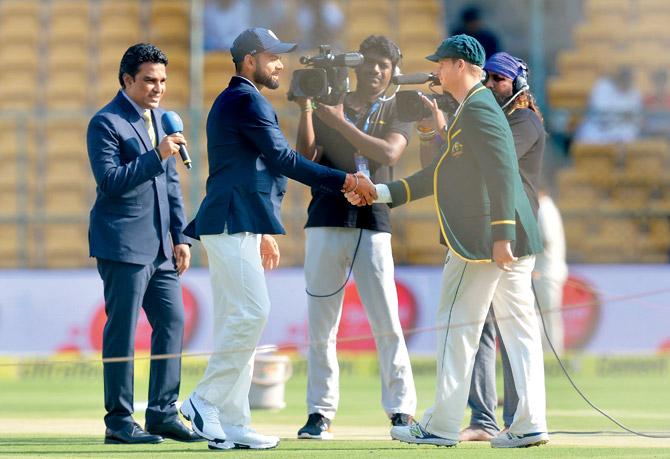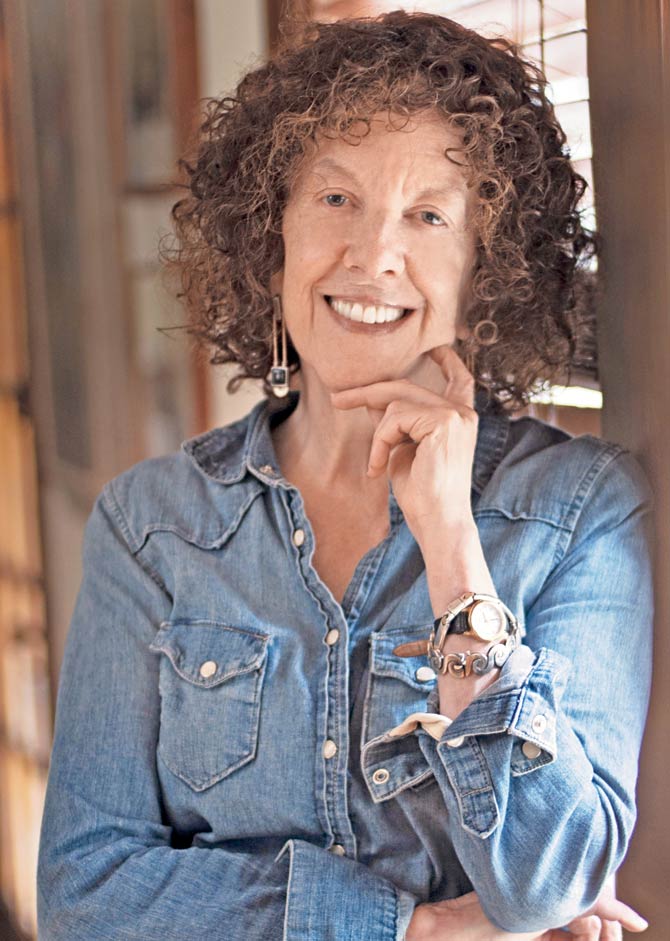In an exclusive interview, psychologist and author Dr Harriet Lerner talks about her latest book on apology


Virat Kohli and Steve Smith shake hands before the toss for the second Test match in Bengaluru. The four-match series ended with accusations and controversies from both sides, even as both captains were at the centre of the action. Smith's apology came at the end of the final Test. Pic/AFP
ADVERTISEMENT
The recently concluded India-Australia Test series will be remembered not just for the cliffhanger that it was, but also for the bad blood that ensued. However, when Australia's captain Steve Smith apologised at the end of the tournament for letting his 'emotions slip' , saying it had been intense throughout the series, it was taken as an effort to bury the hatchet.
"It's laudable that Smith understood the value of apologising, but expressing regret that he let his 'emotions slip' is perhaps not good enough. A better apology might be, 'I'm sorry that I spoke words that were inappropriate and uncalled for. My behaviour was out of line, and I want to assure you that it won't happen again.' Solid leadership demands the capacity to apologise wisely," says psychologist and best-selling author Dr Harriet Lerner, who has been studying apologies for over two decades. She is out with her latest title, Why Won't You Apologize? Healing Big Betrayals and Everyday Hurts (Bloomsbury/Duckworth Overlook).
Using real-life stories, she engages with apology through a gamut of approaches - from what makes a meaningful apology to how not to give in to the pressure of forgiving. We dip into her book and our email conversation to help you say, and accept (or not), the golden words.

Dr Harriet Lerner Pic/Jason Dailey
The challenge of apologising
'We're all apology-challenged with certain people and in some situations,' writes Dr Lerner in the opening chapter. Humans are wired for defensiveness. If we're being criticised, we listen for distortions that indeed may be there. It takes maturity and integrity to listen for what we can agree with, and apologise for it, she states. Acknowledgement is the first step. Any justification or wrong choice of words can undo the apology.
So, what makes for a meaningful apology? "It takes direct responsibility for what we have said and done (or not said and done) without a hint of blaming, obfuscation, excuse-making, and bringing up the other person's crime sheet. It also involves making reparations (if appropriate), expressing remorse, and a commitment to not repeat what you are apologising for," Dr Lerner elaborates.
Family matters
Many layered situations in the book revolve around close relationships, and the author addresses the dilemma of confronting a parent or family member who harmed you and if it's worth it. "The wrongdoer's willingness to own up has nothing to do with how much she or he does or doesn't love you," she says. It's related to their self-love and self-respect.
"No individual will feel accountable and remorseful... if doing so threatens to define him or her in an unacceptable way. So, if you are going to confront a parent who has harmed you, do this because it's the ground you want to stand on," she explains.
The forgiveness conundrum
The author questions the common advice on the need to forgive. She explains, "It is fine to forgive the non-apologetic wrongdoer if this is an important part of your spiritual belief or values. However, forgiveness is only one path of many to free ourselves from the corrosive aspects of anger and bitterness. There is a cost to rushing into a false and premature forgiveness... It leaves the hurt party feeling alone and abandoned all over again."
 Subscribe today by clicking the link and stay updated with the latest news!" Click here!
Subscribe today by clicking the link and stay updated with the latest news!" Click here!







